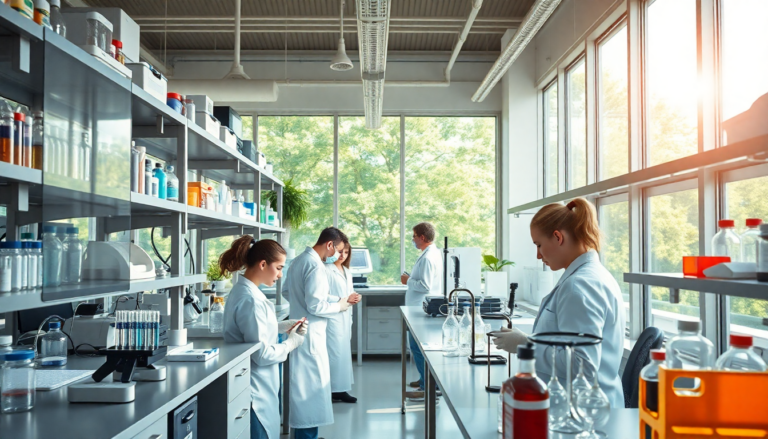Argomenti trattati
Texas is emerging as a dynamic hub for biotechnology and life sciences innovation, attracting global leaders and fostering groundbreaking research. The state’s biopharmaceutical sector significantly contributes approximately $95 billion to the economy, underscoring its importance. With over 7,400 biotech firms operating across Texas, the industry employs more than 116,000 skilled professionals, signaling a robust and growing sector. This flourishing landscape is not just about numbers; it’s about transforming lives through advancements in next-generation therapies and diagnostics.
Texas’s impact on global healthcare
Biotechnology in Texas is making waves worldwide, with innovations spanning cancer therapies, neurotechnology, and precision diagnostics. Major players, including Merck, Kimberly-Clark, Caris Life Sciences, and Salarius Pharmaceuticals, exemplify the strength of the state’s research, diagnostics, and therapeutics sectors. The Texas Medical Center in Houston, which is the largest medical complex globally, serves as a beacon of medical innovation, attracting talent and investment.
Regional clusters driving innovation
Texas boasts several regional hubs that contribute to its biotech momentum. From the Temple Health & Bioscience District to burgeoning clusters in Houston and Austin, these areas present unparalleled opportunities for biotech enterprises. The state’s strong academic-industry partnerships, bolstered by federal investments, further enhance Texas’s reputation as a national leader in biopharmaceutical innovation. For instance, Dallas is home to one of only three national ARPA-H hubs, part of a significant federal initiative designed to accelerate biomedical breakthroughs targeting critical issues like cancer and Alzheimer’s.
Groundbreaking initiatives in Texas
A $3 billion bipartisan initiative is currently underway to establish the Dementia Prevention and Research Institute of Texas (DPRIT), modeled after the highly successful CPRIT. Supported by prestigious institutions like Rice University, the University of Texas Medical Branch, and the Texas Medical Center, this initiative positions Houston as a global center for brain health and dementia research. Additionally, the Texas Medical Center Innovation’s 2025 Accelerator for Cancer Therapeutics is nurturing over 50 startups focused on advancing immunotherapies, diagnostics, and targeted cancer drugs through dedicated mentorship and grant-writing assistance.
Education and workforce development
Texas’s biotech workforce is also rapidly expanding, thanks to a network of educational institutions and training programs. Through workforce grants, STEM initiatives, and strategic partnerships, biotech education in Texas is evolving to meet the industry’s demands. This commitment to developing a skilled workforce ensures that Texas remains at the forefront of life sciences innovation, preparing future generations to tackle the challenges of tomorrow.
A vibrant mix of life science companies
The Texas life sciences economy is characterized by a vibrant mix of multinational corporations and fast-scaling innovators. These organizations encompass a broad spectrum of biotech activities, from bench science to clinical applications. Whether it’s a Fortune 500 biotech firm or a budding startup, Texas provides a solid foundation for growth. The Texas Enterprise Fund and customized job training through the Skills Development Fund further enable companies to scale efficiently and effectively.
Why Texas is the place to be
In conclusion, Texas stands out as a global leader in biotechnology and life sciences innovation, driven by its diverse population, advanced healthcare infrastructure, and collaborative spirit. The interplay between academia, industry, and research institutions fuels the state’s growth and positions it as a beacon for biotech advancements. As companies and researchers continue to push the boundaries of what’s possible, Texas is undoubtedly paving the way for the future of healthcare innovation.

